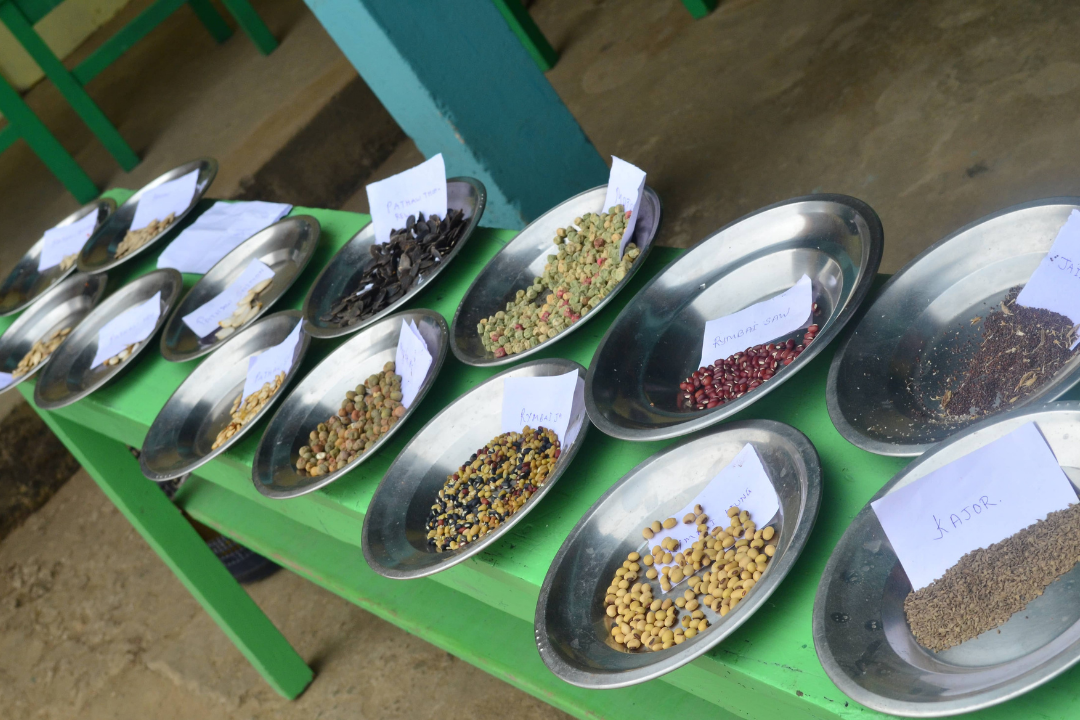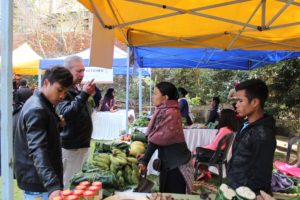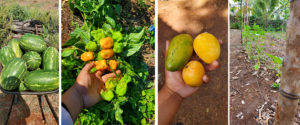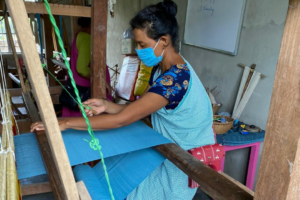NESFAS always aimed to connect people to the pleasure of tasty, healthy, local
food that is inseparable from people’s responsibility towards the environment
and the preservation of agrobiodiversity. The NESFAS team had recently
organized an awareness campaign in Madanritiang about the importance of
agrobiodiversity to instill in the community members the importance and values
agrobiodiversity holds.
However, before the training, Kynsai Borlang Shadap, community facilitator of
the area, was oriented on the importance of agrobiodiversity for our food,
nutrition, and livelihood security. He was also taught about the importance of the
gradual loss of local seeds with the advance of commercial agriculture. “He was
taught about how commercial agriculture is slowly killing traditional farming.
Also, we have encouraged him to identify traditional seed keepers so that we can
preserve them for future use,” NESFAS lead associate (agroecology) Gratia Dkhar
said.

After the training, Kynsai convened a meeting with all the community members
to review the status of the agrobiodiversity in the area. “During the discussion,
we realised that the community has lost most of its local seeds of valuable crops
and other seeds are decreasing in number,” he said.
While the members were encouraged to strengthen seed saving at the household
level, the Agroecology Learning Circle (ALC) members also agreed that it is
equally important to have seed keepers in the community, ones who are
committed to protect and preserve the local seeds, which are the identity of the
community. The ALC group selected two of its community members — Wing
Lamare and Shildamon Lamare — to be role models of the community.
Lamare (63), a custodian farmer of the community, said; I am very happy that I
have been chosen to help save the seeds because I have the vision to revive the
ones that are lost in our community. I will try my best to preserve our local
seeds, especially the varieties of hill paddy. We will work together as a team in
collecting and preserving our seeds and I am grateful to NESFAS for their
support.
These two women will begin collecting seeds during the harvest season
(November onwards) to ensure that the locally adapted traditional seeds are
preserved and made available to others to increase the production of those
seeds.





